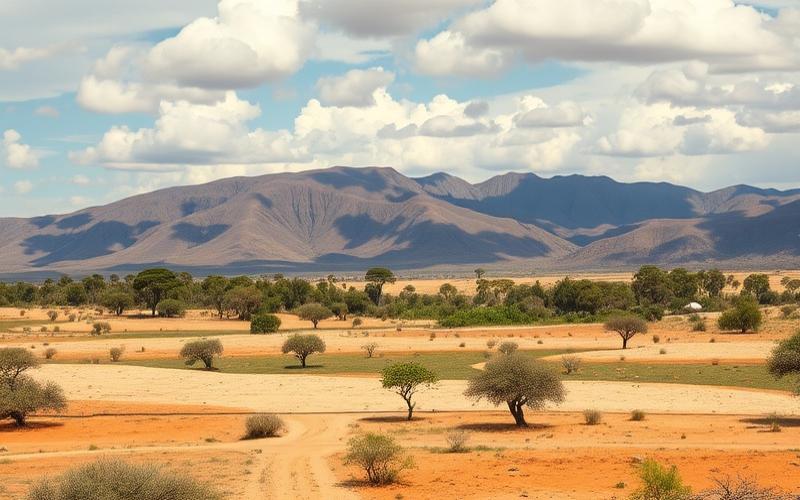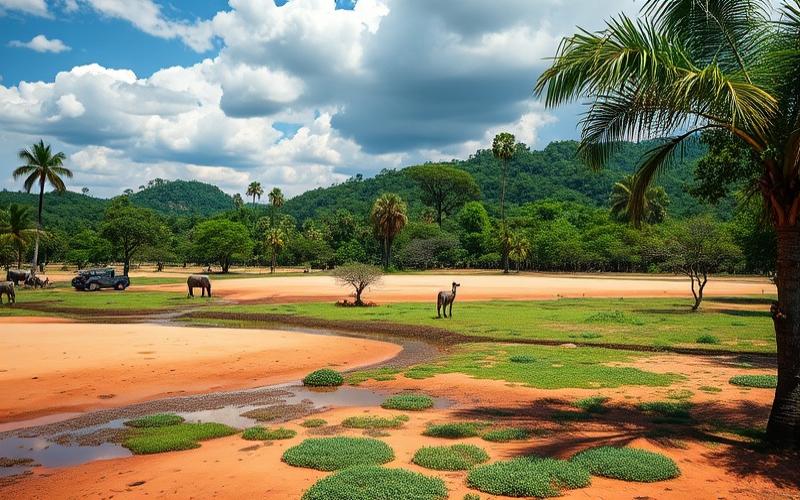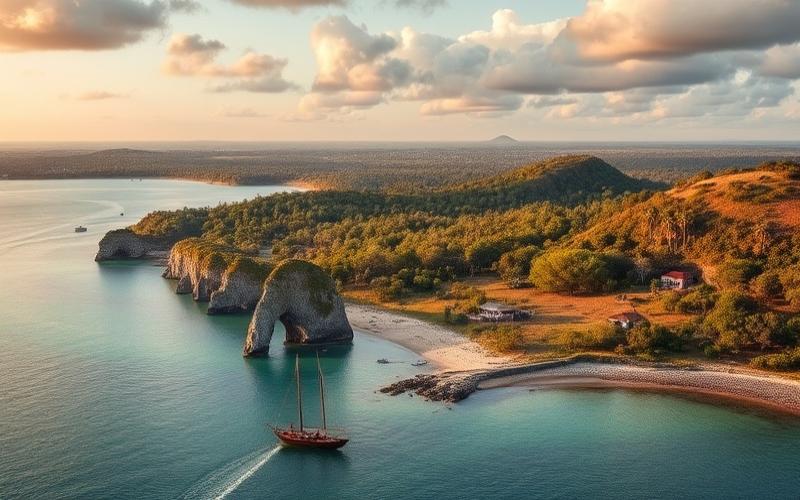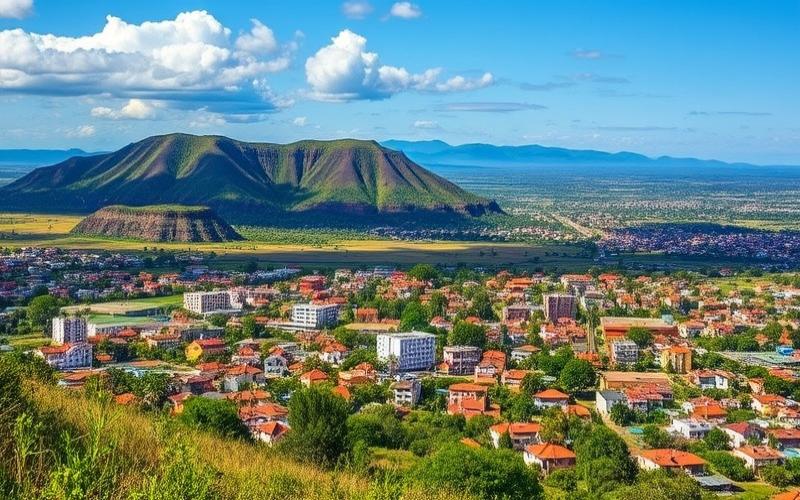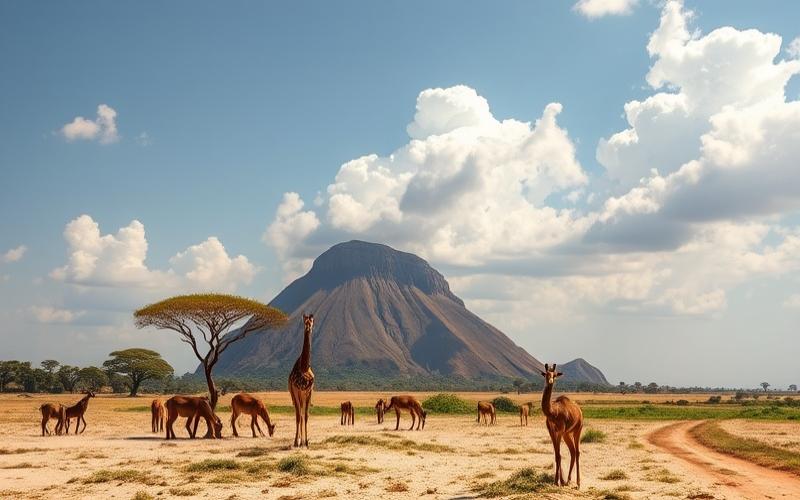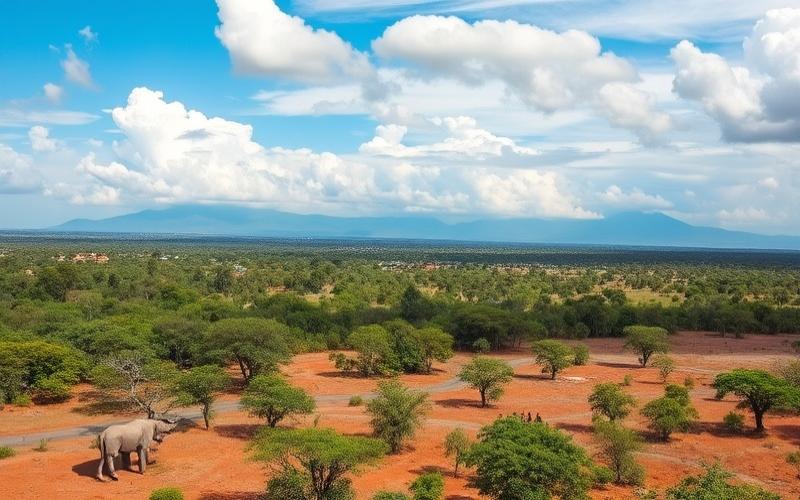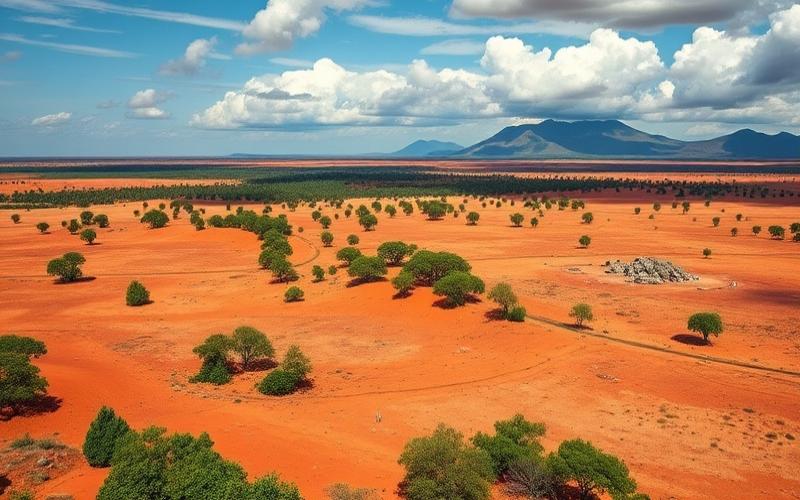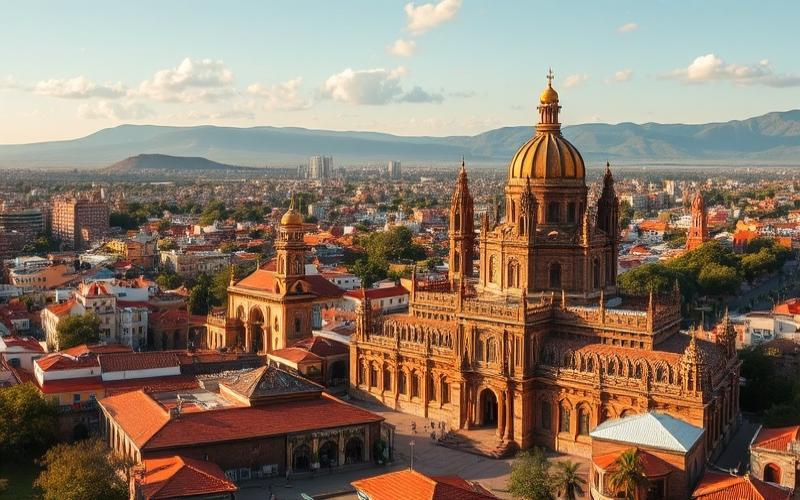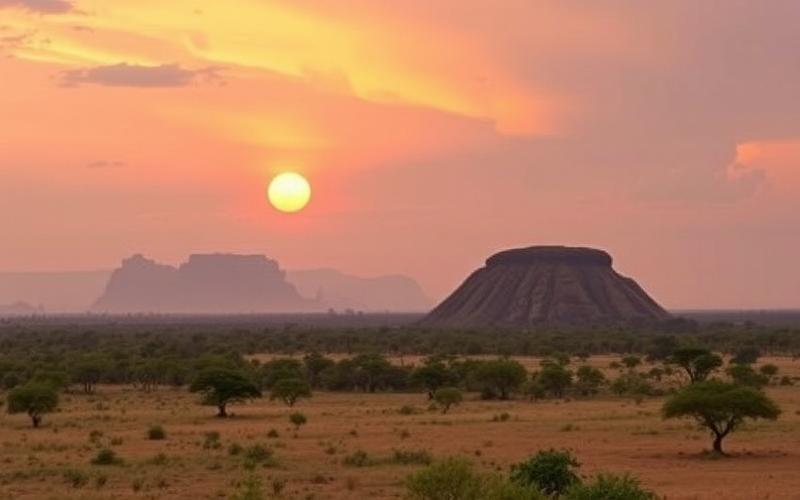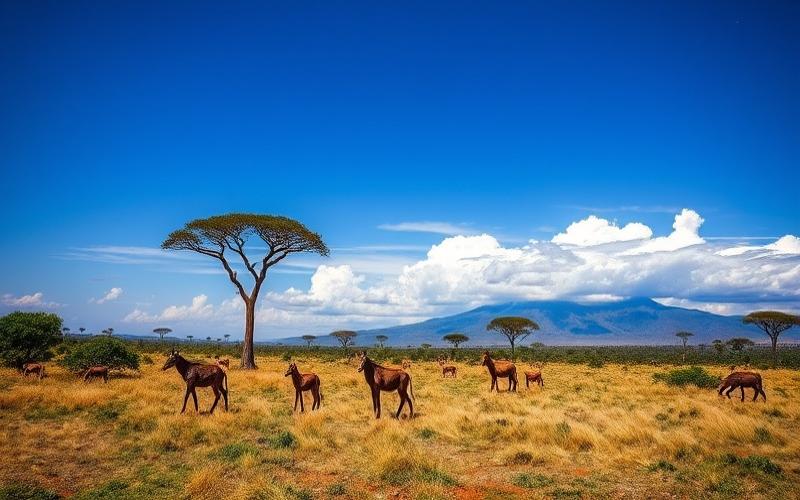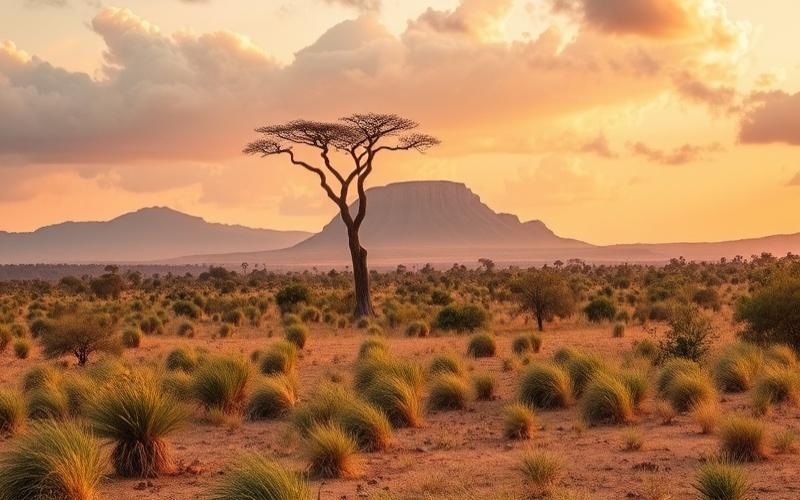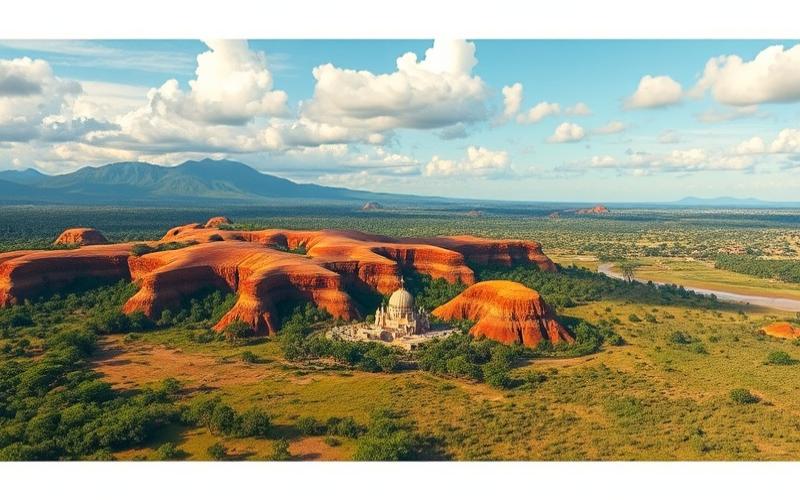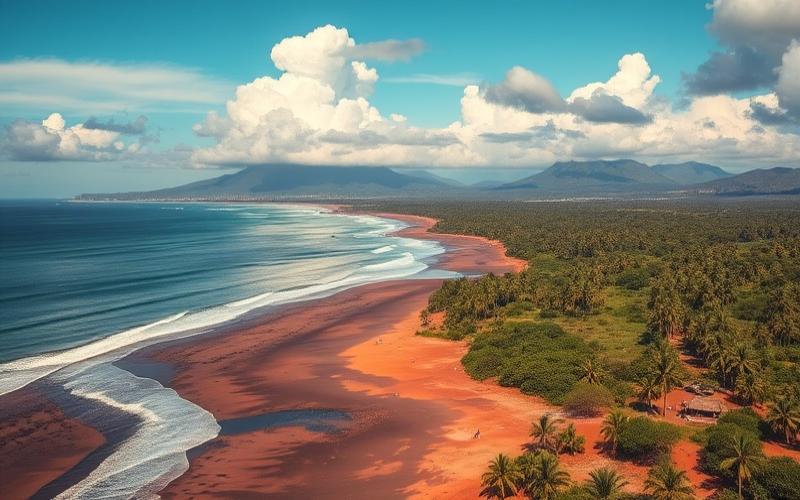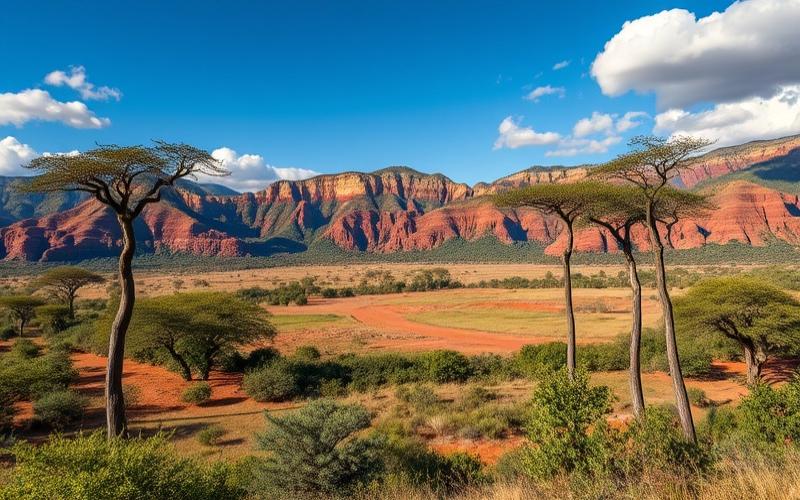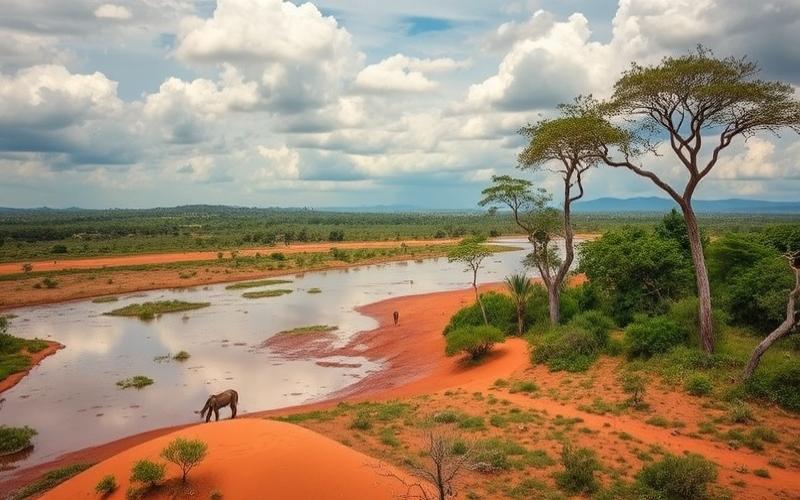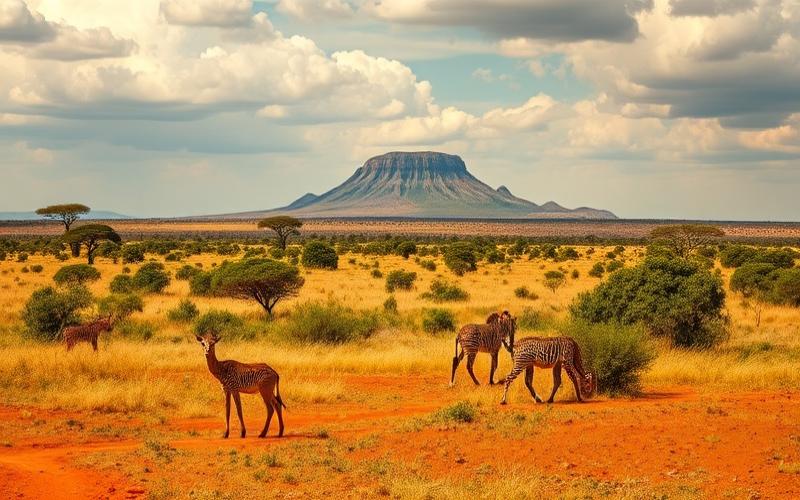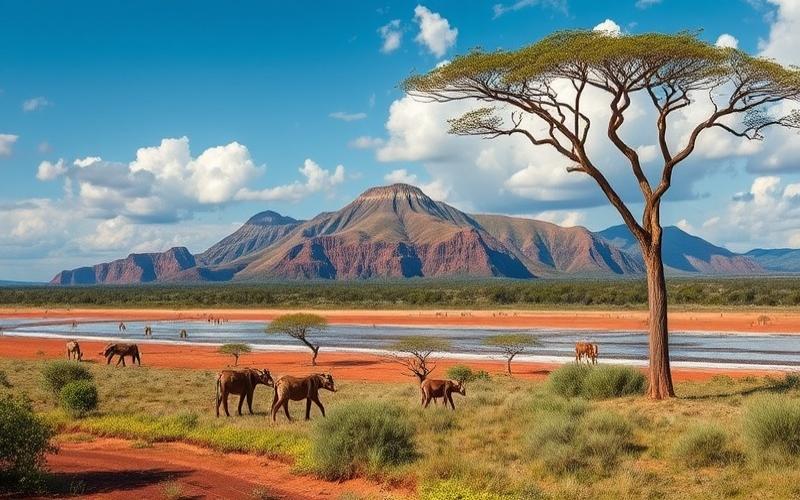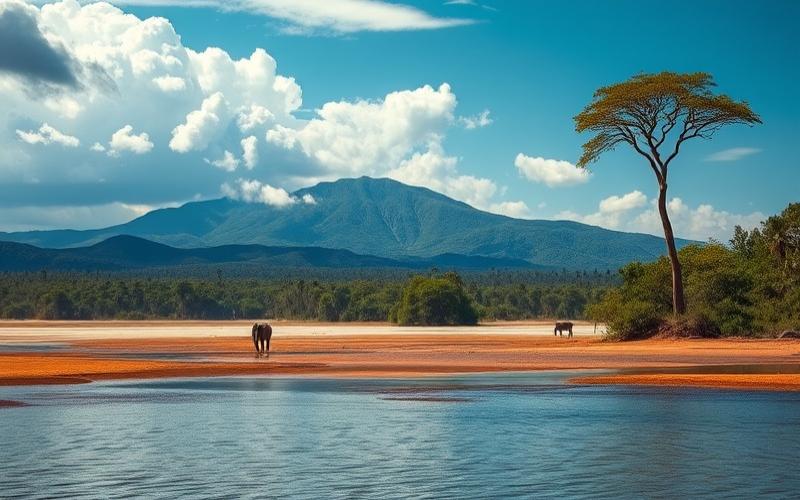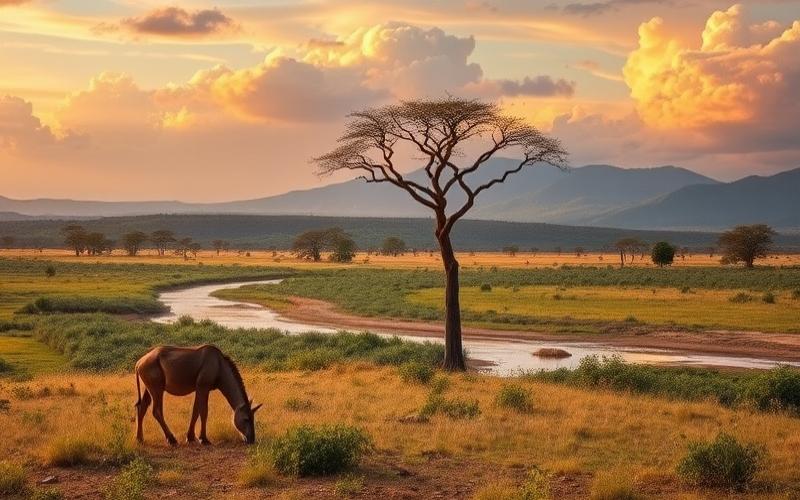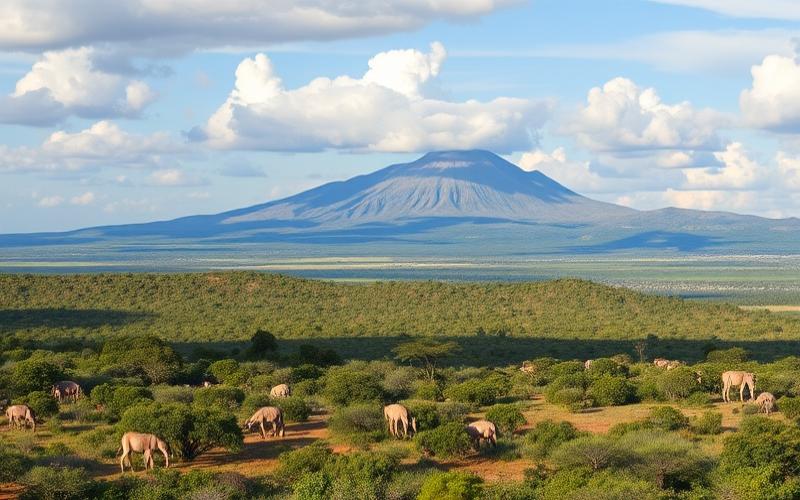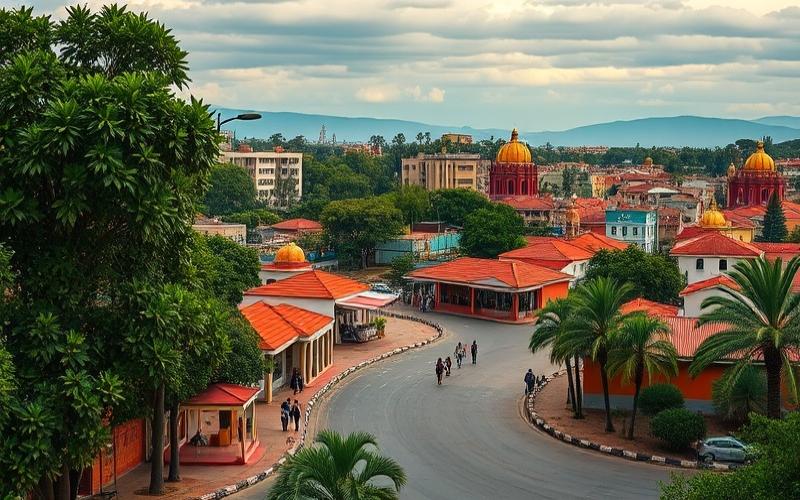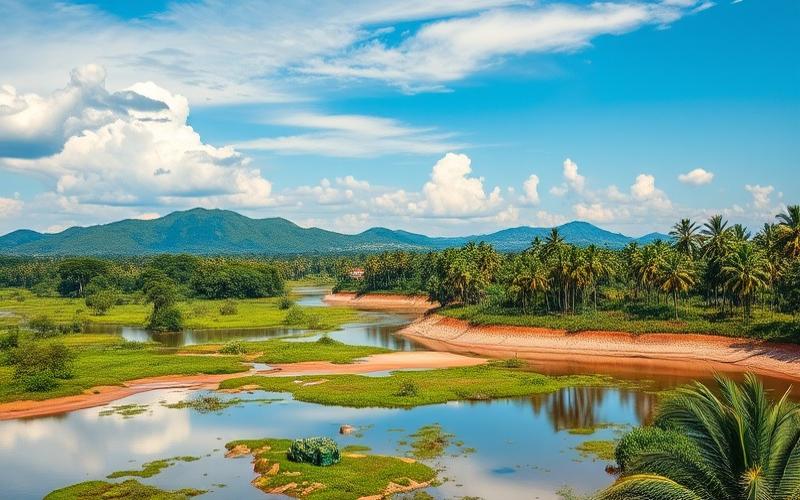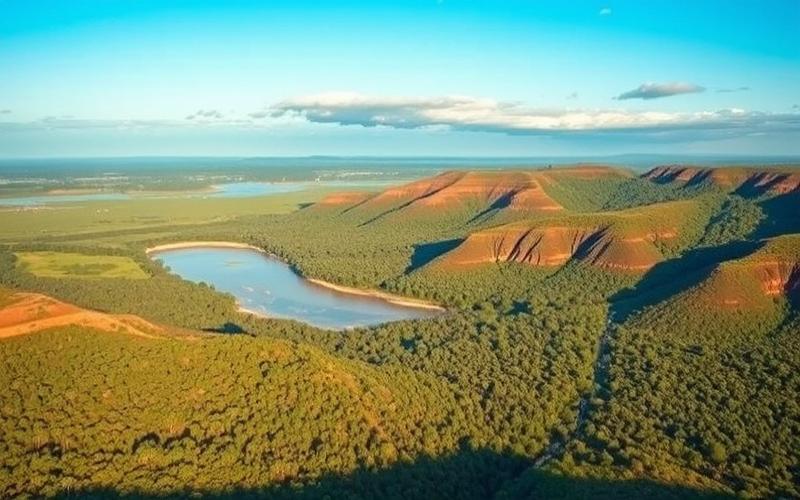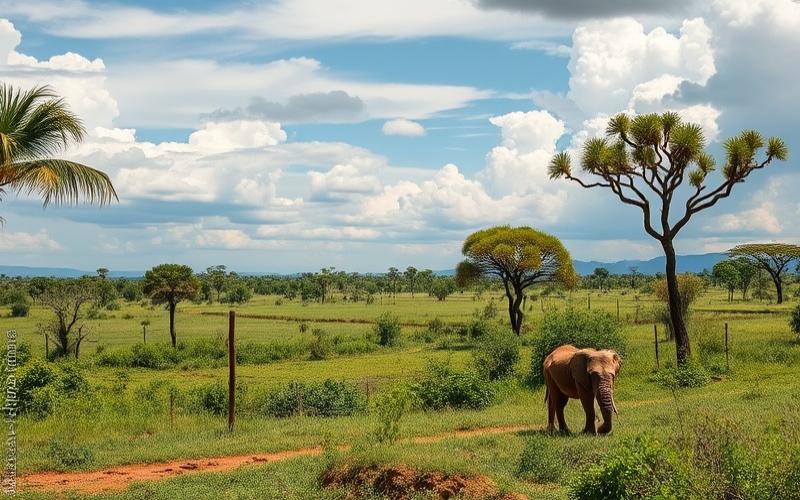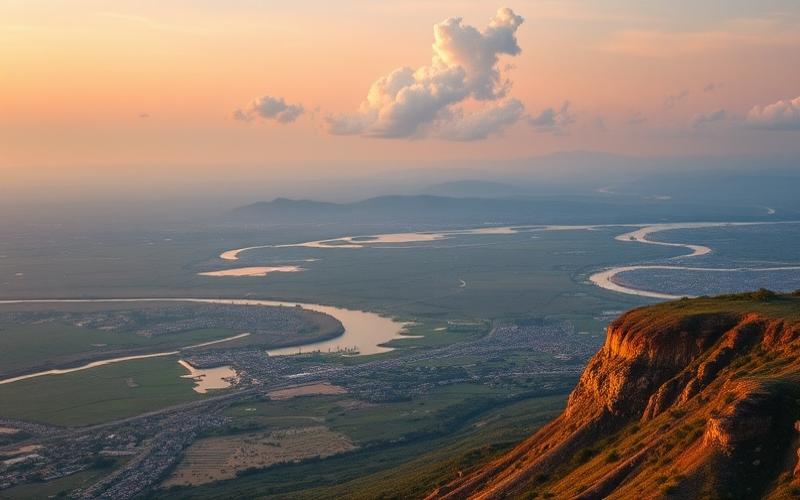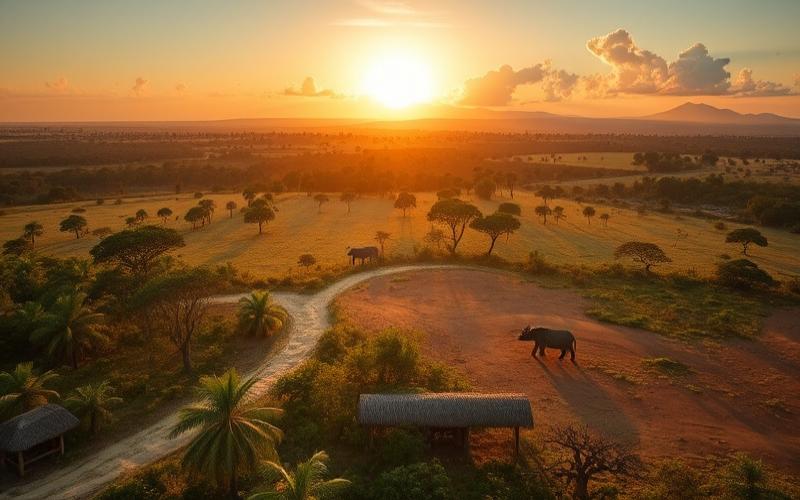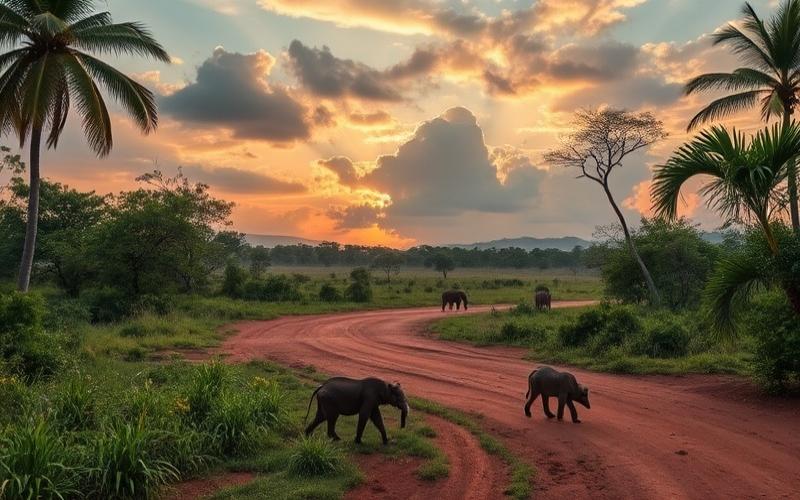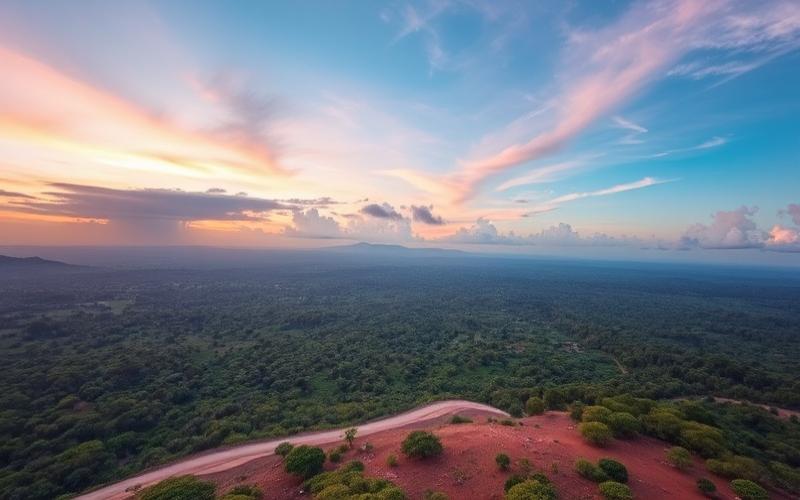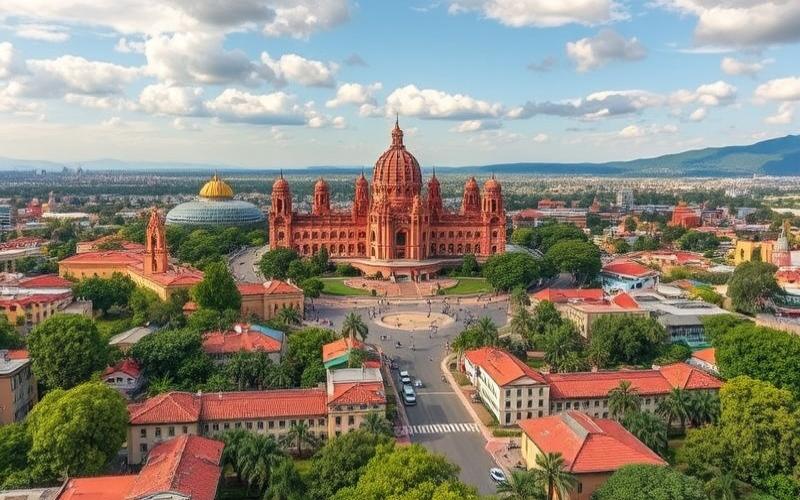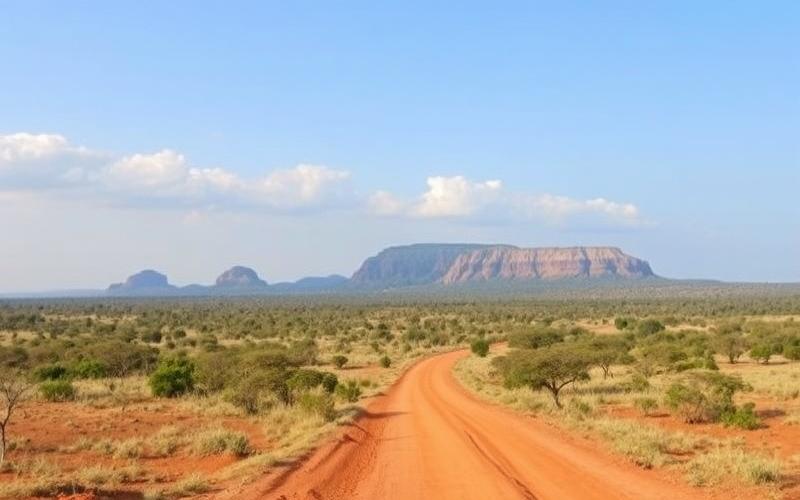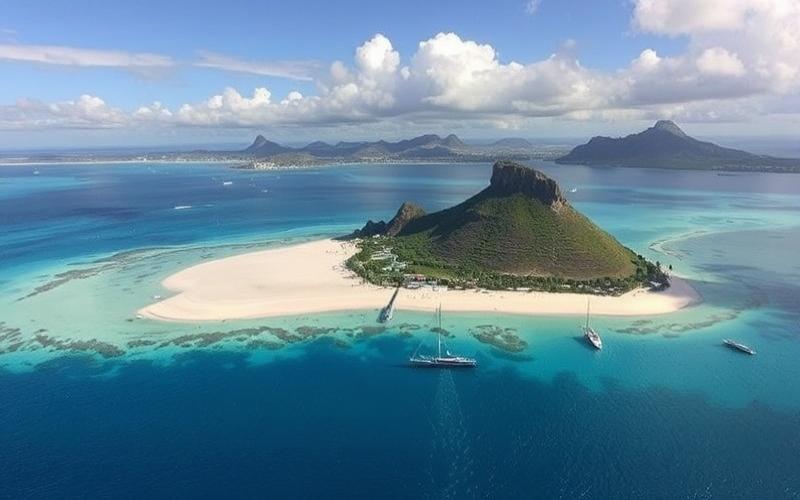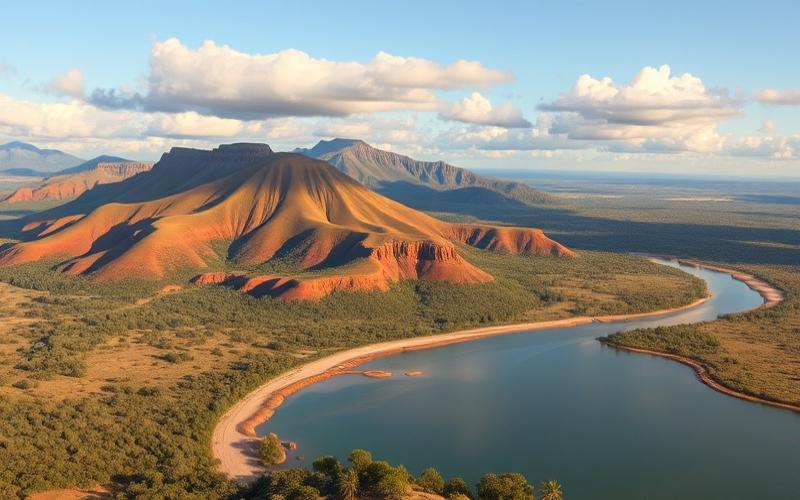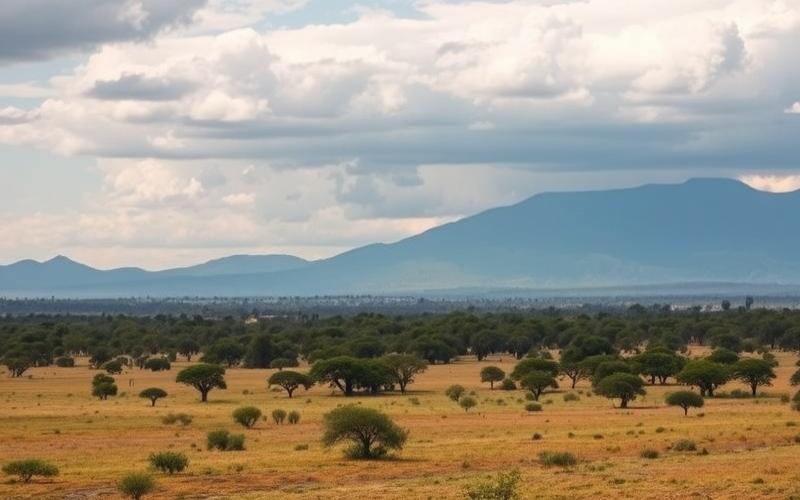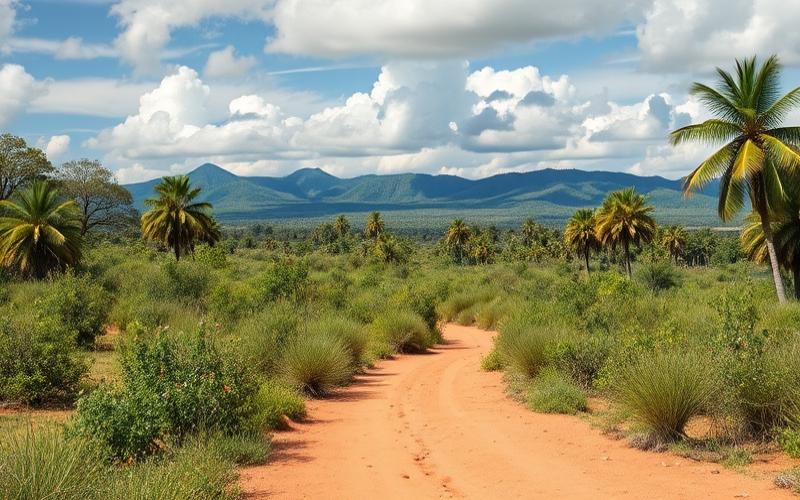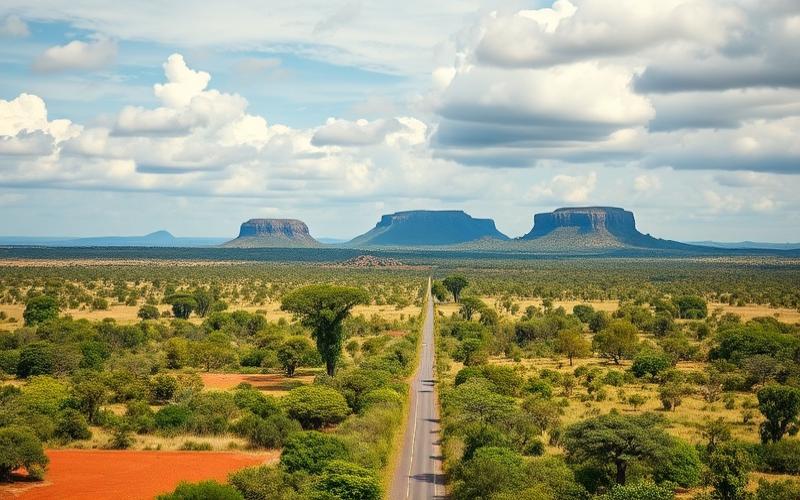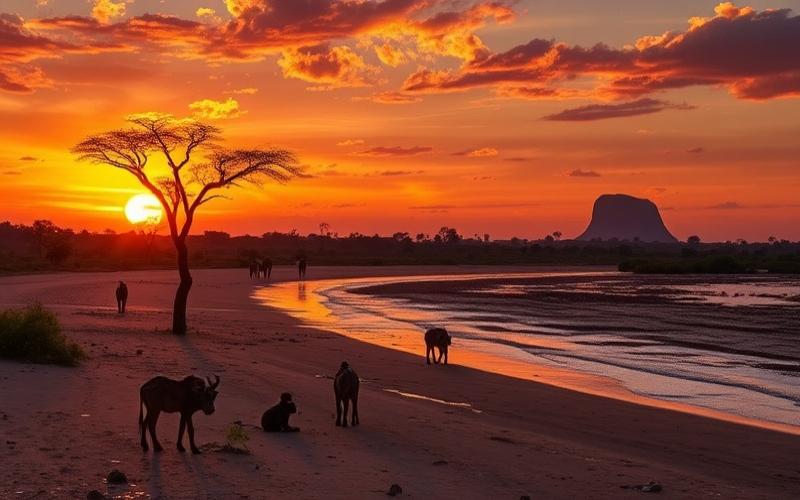
 Published on and written by Cyril Jarnias
Published on and written by Cyril Jarnias
In a context where agriculture remains a fundamental pillar of Madagascar’s economy, acquiring agricultural land presents an attractive opportunity for investors and entrepreneurs seeking to leverage the island’s abundant natural resources. However, this promising investment requires a thorough understanding of the country’s legal nuances.
From the need to understand local land regulations to the importance of securing clear property rights, this guide provides an essential roadmap for navigating the purchasing process while complying with current laws.
Whether you’re a savvy investor or a passionate farmer, this legal overview aims to equip you with essential knowledge to make your project successful within Madagascar’s legislative framework.
Overview of Land Law in Madagascar
Madagascar’s land system results from historical evolution marked by the coexistence of traditional and modern systems, with major transformations occurring since the colonial period.
Historical Evolution of the Legal Framework
Before 1896, land in Madagascar was governed by customary systems where rulers (kings and queens) exercised power over lands. Malagasy people occupied their lands without written documentation proving their ownership.
French colonization in 1896 marked a fundamental break with the introduction of the Torrens system that profoundly modified the land regime. This reform established the principle of state domain over lands, nullifying previous customary rights and transferring recognition power to the administration. The first land services were established that same year.
In 1921, an important legal distinction was made between registered lands and those held under customary law. During the colonial period, approximately 20% of arable land was expropriated by the French to be granted to settlers.
Structure of Current Land Law
Since independence, Madagascar has maintained a land management policy based on the principle of state domain inherited from the colonial period. The system relies on the primacy of land titles that confer definitive rights through registration in the land register.
Madagascar’s land regime distinguishes between:
- State domain lands
- Titled and registered lands (formal private property)
- Lands occupied under customary law
Land System Challenges
Madagascar’s land system faces several issues:
| Challenges | Manifestations | Consequences |
|---|---|---|
| Deteriorating archives | Nearly 120-year-old archives in poor condition | Difficulties accessing land information |
| Unequal access to titles | Complex procedures for Malagasy citizens | Land insecurity for local populations |
| Legal duality | Difficult coexistence between modern law and customary practices | Recurrent land conflicts |
Reforms and Governance
A land reform has been undertaken to build on past experiences and attempt to resolve the system’s structural problems. This reform particularly aims to reconcile traditional practices with the modern legal framework.
Land reform constitutes a major challenge for Madagascar’s development, touching on issues of food security, agricultural investment, and social peace.
Local authorities play an increasing role in land governance, with a trend toward decentralization of certain land administration competencies, although the central state retains important prerogatives in defining land policies.
Good to know:
Land law in Madagascar rests on a complex framework from the colonial era, consolidated by several key legal texts, such as law n° 2005-019 on land property. Lands are mainly classified into two types: those belonging to the state, which include land reserves and titled private properties. Recent reforms, particularly those aiming to clarify property rights through land registration, have improved land security, but still require efforts for effective implementation, especially in rural areas. Local authorities play a predominant role in managing land titles, but challenges remain, including tenure conflicts and slow administrative processes. Current and future owners must pay attention to these dynamics to navigate administrative complexities, considering litigation risks and the importance of securing clear, legally recognized transactions.
Understanding Rural Zoning and Its Implications
Types of rural zoning in Madagascar are primarily defined according to agro-ecological, socio-economic, and administrative criteria. Each zoning type corresponds to specific uses and comes with regulations that directly influence the purchase, operation, or future development of agricultural lands.
Main Types of Rural Zoning in Madagascar
| Type of rural zone | Main characteristics |
|---|---|
| Family farming zones | Small farms, often located in the Highlands (70% of producers), characterized by subsistence polyculture and food vulnerability. |
| Agro-industrial zones | Areas designated for large farms oriented toward commercial or industrial production (cotton, sugarcane, etc.). |
| Remote zones | Isolated regions difficult to access (e.g., Analanjirofo, SAVA), with strong productive potential but underdeveloped infrastructure. |
| Pastoral zones | Regions primarily dedicated to extensive livestock farming. |
| Forest zones | Areas subject to specific regulations for environmental preservation; agricultural activities limited or prohibited. |
Laws and Regulations Governing Rural Zoning
- Madagascar legislation distinguishes several land categories: titled private domain, customary lands (“untitled”), public domains.
- Intercommunal master urban plans (PUDi) incorporate a land use zoning system including rural areas and define applicable rules for each category.
- Agricultural land laws impose that only Malagasy citizens can directly acquire rural lands; for foreigners, only long-term lease is possible through emphyteutic lease.
Implications for Potential Buyers
List of main implications:
- Usage restrictions:
- Some lands classified as forest or protected zones can only be exploited with specific authorization.
- Local plans may limit construction beyond strictly agricultural activities in certain rural areas.
- Tax advantages/disadvantages:
- Taxation differs according to land status: partial exemption possible in family farming zones; increased taxation if conversion to commercial use.
- Legal risks:
- Purchase in an untitled zone exposes the buyer to risk of customary or community challenge.
- Non-compliance with local plan may lead to cancellation of operating/building permits or even administrative expropriation.
Concrete Examples
An investor wishing to transform a traditional rice field located in the Highlands into an intensive plantation must verify if their land is in a “family farming zone” where only certain crops are authorized – otherwise they risk administrative refusal when submitting the project.
In the SAVA region (remote but very fertile zone), a developer might encounter major logistical difficulties due to lack of road infrastructure despite high potential – this factor must be considered before any purchase.
Purchase by a foreigner wishing to develop an agro-industrial farm will be limited to long-term lease; any direct attempt is legally null and void.
Visual Summary: Possible Effects of Zoning on Future Exploitation
| Type/Location | Permitted use | Notable restrictions | Main risk |
|---|---|---|---|
| Family farming zone | Subsistence polyculture | Limitation on expansion/commercialization | Customary challenge |
| Agro-industrial zone | Monoculture/export | Compliance with environmental standards | Tax variation |
| Forest/protected zone | Restricted use | Need for special authorizations | Expropriation/administrative sanctions |
Therefore, strict compliance with the local legal framework is essential before any rural land investment to avoid future blockages related to legal or tax status and applicable national/local plans.
Good to know:
In Madagascar, rural zoning is structured into several categories, including arable lands, pastures, and forest zones, each with its specific characteristics. Agricultural land purchase is governed by the Territorial Planning Code which imposes usage restrictions, such as limitations on converting agricultural lands to residential zones without prior authorization. For example, purchasing land classified in an arable zone may offer tax incentives but also imposes agronomic production obligations to avoid land speculation. Buyers must also be wary of legal risks, such as disputes over often unregistered customary land rights. Thus, before any investment, it’s crucial to verify if the land is affected by rural development projects that could restrict its free exploitation or influence its future value.
Building Permits for Agricultural Land
Building permits on agricultural land in Madagascar are governed by several legislative texts that define obtaining conditions and applicable restrictions. Law n° 2015-052 relating to Urban Planning and Housing constitutes the main legal framework governing constructions throughout Madagascar.
Madagascar legislation provides that building permits can be granted for agricultural use constructions, similarly to residential, commercial, or industrial constructions. However, certain conditions must be respected to obtain this authorization.
For agricultural lands, the distinction between private and commercial use isn’t explicitly mentioned in available texts, but constructions are evaluated according to their importance and purpose. Constructions must be served by public or private roads adapted to the importance and purpose of the planned building or building complex.
Restrictions and Special Conditions
- Constructions on lands exposed to natural risks (flooding, erosion, subsidence, landslides) may be subject to special conditions that release public authority responsibility.
- Building permits may be refused if lands aren’t properly served by public or private roads adapted to the importance and purpose of planned constructions.
- According to the Urban Planning and Housing Code, permits must be refused if constructions, by their location or dimensions, are likely to harm public health.
Legal Status of Lands
In Madagascar, lands are classified according to different legal statuses:
| Type of land | Applicable regime |
|---|---|
| State public and private domains | Rules of domain management |
| Decentralized Communities domains | Rules of domain management |
| Private individuals’ lands | Rules of land management |
Private individuals’ lands may be subject to different property regimes, particularly those with property rights recognized by a land title.
Considerations for Foreign Buyers
The Malagasy Constitution guarantees the right to individual property, stipulating that no one can be deprived of it except through expropriation for public utility and with fair and prior compensation. The State also commits to facilitating access to land property through appropriate legal and institutional mechanisms.
Steps for Obtaining Building Permits
- Ensure the land isn’t located in a natural risk zone
- Verify the land is properly served by access roads
- Submit an application to competent authorities
- Respect specific conditions related to the agricultural nature of the land
Agricultural lands are subject to the land registration regime, as defined in the Malagasy Land Code. This registration is essential for clearly establishing property rights before initiating construction procedures.
Good to know:
In Madagascar, construction on agricultural land requires a building permit, whose issuance is governed by current legislation that allows private use constructions under certain conditions but imposes restrictions for commercial projects. Procedures include submitting an application to municipal or regional urban planning services, accompanied by construction plans, property certificates, and environmental impact studies. Depending on the land’s location, specific regulations may apply, particularly in protected or flood-prone zones. Foreign buyers must inform themselves about restrictions concerning land ownership by non-nationals and consider local partnerships, complying with bilateral agreements between Madagascar and their country of origin. Exemptions exist for projects promoting rural development, but recent cases show increased vigilance by authorities to prevent misuse of agricultural lands.
Strategies to Avoid Purchase Risks
Property Title Verification
Before any purchase, it’s essential to ensure the seller holds a valid property title. This step helps avoid disputes and fraudulent purchase risks. Required legal documents include the official land title, extract from the land register, and any document proving the property’s chain of transmission (previous notarized acts).
The standard procedure consists of:
- Requesting a recent copy of the land title from competent services.
- Verifying absence of mortgages or ongoing disputes on the land.
- Using a notary to authenticate the validity and regularity of presented titles.
Study of Land Legislation
Madagascar legislation imposes certain restrictions on land acquisition, particularly for foreigners who cannot directly acquire undeveloped lands. Access often occurs through:
- Creating a local company (under Malagasy law) allowing acquisition under specific conditions.
- Possibly obtaining a long-term emphyteutic lease (up to 99 years) to legally exploit the land without owning it.
Key points to master:
- Law n°2023-002 on investments: defines who can acquire and under what conditions;
- Obligation for any foreign investor or foreign company to seek authorization from the Economic Development Board of Madagascar (EDBM);
- Strict limitation regarding usage: only certain commercial, agricultural, or industrial uses are authorized.
Using a Notary or Lawyer
Consulting a local notary or lawyer provides additional guarantee to secure the transaction. These professionals intervene during the following steps:
- Thorough legal analysis of the land file;
- Drafting and authenticating sale deeds;
- Prior verification with the national land service to confirm no legal obstacle prevents transfer;
Practical advantages:
- Complete legal security
- Prevention against documentary fraud
- Effective representation during administrative procedures
Environmental and Social Risk Assessment
Responsible purchase also involves rigorous environmental and social assessment:
List of recommended verifications:
- Prior environmental study to identify any soil-related risk (potential pollution, floodability…)
- Analysis of potential impact on local communities: consultation with neighboring populations, verification that no informal occupation persists
- Assessment regarding agricultural sustainability: potential compliance with local ecological standards
Financial Considerations
To avoid any financial surprises:
| Strategy | Objective |
|---|---|
| Independent evaluation | Obtain neutral opinion on land’s real value |
| Conditional payment | Release funds progressively according to progress |
| Tax verification | Ensure no tax debt is attached |
Other useful precautions:
- Require all written proof concerning absence of hidden financial charges
- Prefer sequenced payment until effective delivery of definitive title
Market and Location Research
To minimize economic risk:
- Analyze comparatively several offers in the same target region
- Regularly consult trends published by local real estate agencies
- Question neighbors/local professionals regarding planned future evolution (major public/private projects)
- Use official mapping to identify zones subject to particular restrictions
In summary:
A structured approach combining meticulous documentary analysis, qualified local professional support, regulatory vigilance, and thorough financial and environmental study enables potential buyers – both national and international – to significantly reduce all risks associated with agricultural acquisition in Madagascar.
Good to know:
To avoid risks when purchasing agricultural lands in Madagascar, it’s crucial to verify that the seller holds a valid property title, by obtaining necessary legal documents and authenticating titles with competent local services. Understanding Malagasy land legislation is essential, especially laws governing agricultural land use and restrictions for foreign investors. Seeking expertise from a local notary or lawyer is vital to guarantee transaction regularity, these professionals being able to protect the buyer’s interests at every step. Assessing environmental and social risks is imperative, by analyzing land use sustainability and impact on local communities. Prudent financial strategies include independent land evaluation and conditional payment, ensuring legal requirements are met before fund transfer. Conducting thorough market and location research helps avoid overpayment and understand local land value trends.
Disclaimer: The information provided on this website is for informational purposes only and does not constitute financial, legal, or professional advice. We encourage you to consult qualified experts before making any investment, real estate, or expatriation decisions. Although we strive to maintain up-to-date and accurate information, we do not guarantee the completeness, accuracy, or timeliness of the proposed content. As investment and expatriation involve risks, we disclaim any liability for potential losses or damages arising from the use of this site. Your use of this site confirms your acceptance of these terms and your understanding of the associated risks.

